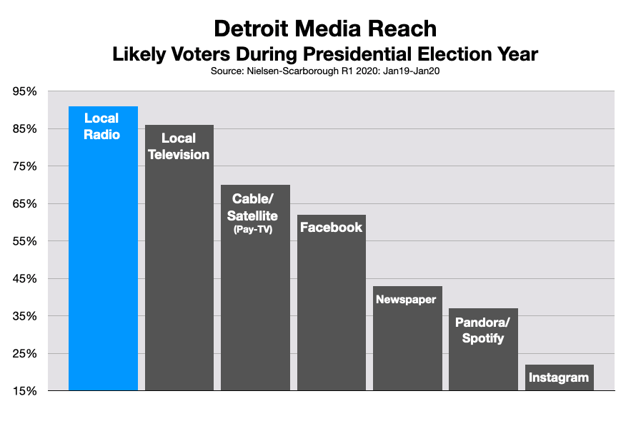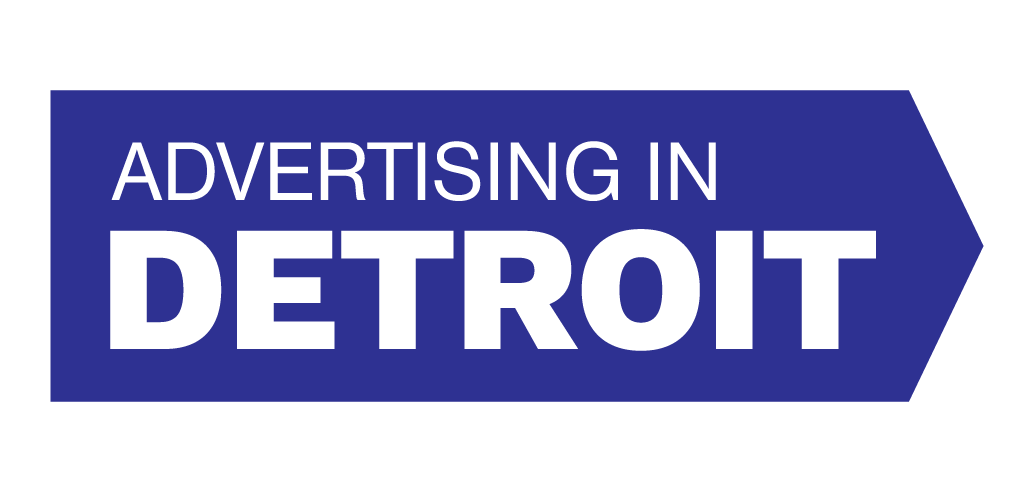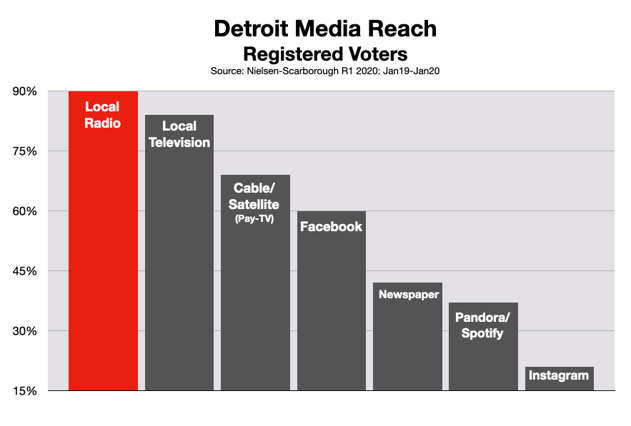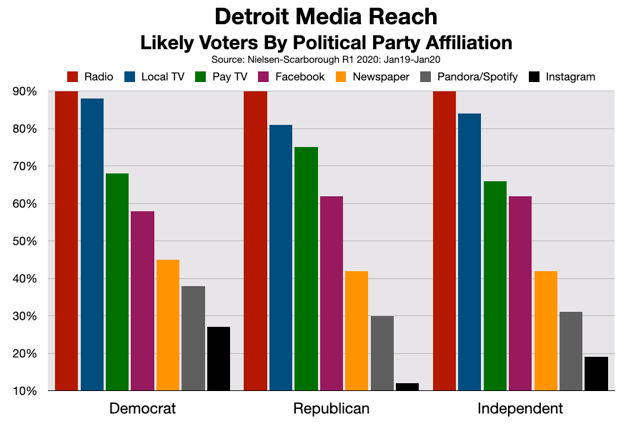 On September 4, the political advertising window opened on Detroit television and radio stations. This is a 60 day period leading up to a general election when broadcast stations licensed by the Federal Communication Commission are obligated to offer candidates for national office the opportunity to buy commercials at the lowest unit rate (LUR).
On September 4, the political advertising window opened on Detroit television and radio stations. This is a 60 day period leading up to a general election when broadcast stations licensed by the Federal Communication Commission are obligated to offer candidates for national office the opportunity to buy commercials at the lowest unit rate (LUR).
For example, if a high-frequency advertiser like McDonald's earns the lowest rates on a particular Detroit radio station during morning drive-time, then any candidate for federal office must, during the 60-day political window, be offered the same rate for morning drive time on that station, regardless of frequency.
If, however, the McDonald's rate is contingent on the radio station's ability to pre-empt commercials without notice, then qualified candidates must agree to identical terms to receive the same rate.
To facilitate the purchase of commercials on Detroit radio, stations will supply candidates with a political rate-card. This card will show the LUR by time of day and by preemption parameters.
Here are other important facts about political advertising on Detroit radio.
- The political advertising window and LUR rules only apply to licensed Detroit radio and television stations. Political advertising costs for newspapers, cable systems, online, and billboards are not regulated.
- Only advertising paid for directly by candidates qualifies for LUR. Issue advertisers, political action committees (PACs), and other third-parties must pay a radio station's market rate.
- During the 60 day political advertising window, Detroit radio stations are only obligated to sell time to candidates for federal office. This includes those running for President, Vice President, or US House and Senate seats.
- Detroit radio stations are not obligated to sell advertising to candidates for statewide or local offices. If, however, a station accepts advertising from a candidate for a non-federal office during the 60 day window, then that candidate must be offered the LUR. Furthermore, once a station accepts advertising from one candidate in a statewide or local race, then it must provide other candidates in the same race with an ability to buy advertising as well.

There are more than 3.3 million registered voters in Southeast Michigan. According to Nielsen, Detroit radio reaches significantly more of these registered voters than all other media, including local television pay-TV, newspaper, social media platforms, and streaming audio sites like Pandora or Spotify.
To be elected, however, requires candidates for every office to share their message with those who are not only registered but who are likely to vote. Advertising on Detroit radio will reach, by far, the most voters who can be counted on to show up on election day.
 Advertising on Detroit radio allows candidates to tailor and target their message to the largest number of voters of every party affiliation.
Advertising on Detroit radio allows candidates to tailor and target their message to the largest number of voters of every party affiliation.
For candidates challenging incumbents in Southeast Michigan elections, radio advertising has shown to reduce any advantage the current officeholder might have.
A study published in the American Journal of Political Science indicates that when challengers for occupied offices advertised on local radio stations, the incumbent's share of votes decreased considerably from their previous election. The share drop ranged from 3.9% to 7.0%, depending on the amount of radio advertising purchased.
Over the last several election cycles, this loss of voter share experienced by the incumbents in the study could have been enough to sway the election in favor of the many challengers.
More Advice For Advertising In Southeast Michigan
- Advertising In Detroit: OTT & CTV Viewing Soars
- B2B Advertising In Detroit: Reaching The Decision Makers
- How Has Working From Home Affected Advertising On Detroit Radio?
- Advertising in Detroit: The Radio Century
- What Is The Best Way To Reach Metro Detroit's 3.5 Million Consumers?
- What Detroit Consumers Need To Know Now About Your Small Business
- Advertising In Detroit: Radio Listening Little Change From Year Ago





